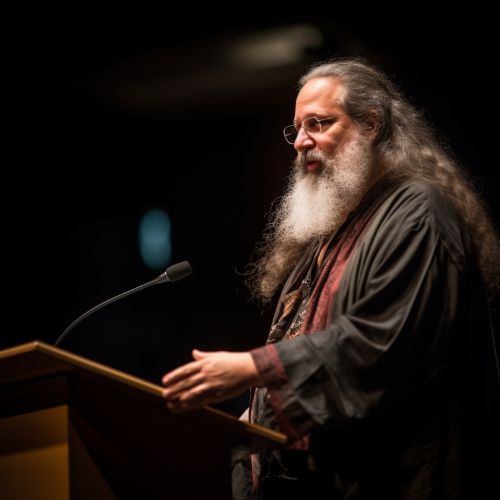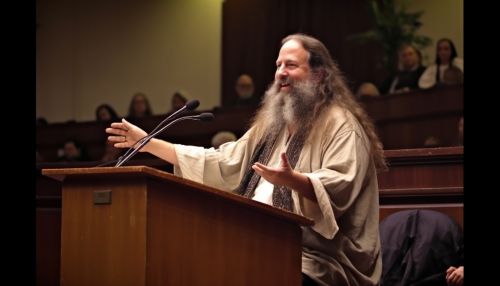Richard Stallman
Early Life and Education
Richard Matthew Stallman, often known by his initials, RMS, was born on March 16, 1953, in New York City. From a young age, Stallman showed a keen interest in science and mathematics, which would later shape his career in computer science.
Stallman attended Harvard University, where he graduated in 1974 with a Bachelor of Arts degree in Physics. During his time at Harvard, Stallman became fascinated with the emerging field of computer science and began working at the MIT AI Lab, a hub for pioneering research in artificial intelligence.
Career at MIT AI Lab
Stallman's early career at the MIT AI Lab was marked by significant contributions to software development. He was part of a team of programmers who developed the Incompatible Timesharing System (ITS), an influential early operating system. Stallman's work on ITS demonstrated his ability to write complex, efficient code and his commitment to the principles of software freedom.
In the late 1970s and early 1980s, the culture at the MIT AI Lab began to change as many of Stallman's colleagues left to join private companies in the burgeoning software industry. Stallman, however, remained committed to the principles of software freedom and resisted the trend towards proprietary software.
Free Software Movement
In 1983, Stallman launched the Free Software Movement, a campaign to promote the freedom to study, distribute, create, and modify software. The movement was a response to the increasing commercialization of software and the restrictions placed on users by proprietary software licenses.
Stallman's philosophy of software freedom was encapsulated in the GNU Project, which he launched in 1984. The aim of the GNU Project was to develop a complete Unix-like operating system that was free for users to run, study, share, and modify. The project marked a significant shift in the software industry and laid the groundwork for the development of the Linux operating system.
GNU General Public License
In 1989, Stallman wrote the GNU General Public License (GPL), a widely used free software license that guarantees end users the freedom to run, study, share, and modify the software. The GPL is based on the concept of copyleft, a method for licensing copyrighted work for free use, while requiring all modified and extended versions of the software to be free as well.
The GPL has had a profound impact on the software industry, influencing the development of numerous free software projects, including the Linux operating system. It has also sparked debate about issues of software freedom, copyright, and the ethics of the software industry.
Later Career and Activism
In addition to his work on the GNU Project and the GPL, Stallman has been a vocal advocate for software freedom and has spoken out against software patents, digital rights management, and other practices he sees as threats to software freedom.
Stallman has received numerous awards and honors for his work, including the 1990 MacArthur Fellowship, the 1999 Electronic Frontier Foundation's Pioneer Award, and the 2001 Takeda Award.
Despite his significant contributions to the software industry, Stallman's views have been controversial and have sparked debate within the tech community. His uncompromising commitment to software freedom and his criticism of proprietary software have made him a divisive figure, but his influence on the software industry is undeniable.


